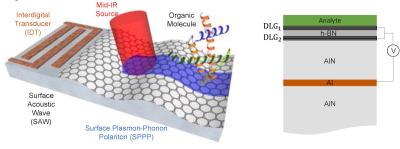Researchers explore the effects of physical manipulations on graphene's optical properties and conductivity
Researchers at Florida State University (FSU), Chinese Academy of Sciences (CAS) and Wuhan University have examined how physical manipulations of graphene, such as layering and twisting, impact its optical properties and conductivity.
The team, led by Assistant Professor Guangxin Ni, along with Assistant Professor Cyprian Lewandowski and graduate research assistant Ty Wilson, found that the conductivity of twisted bilayer graphene is not heavily impacted by physical or chemical manipulations and instead depends more on how the material’s minute geometry structure changes by interlayer twisting — a revelation that opens the door for additional studies on how lower temperatures and frequencies impact graphene’s properties.

